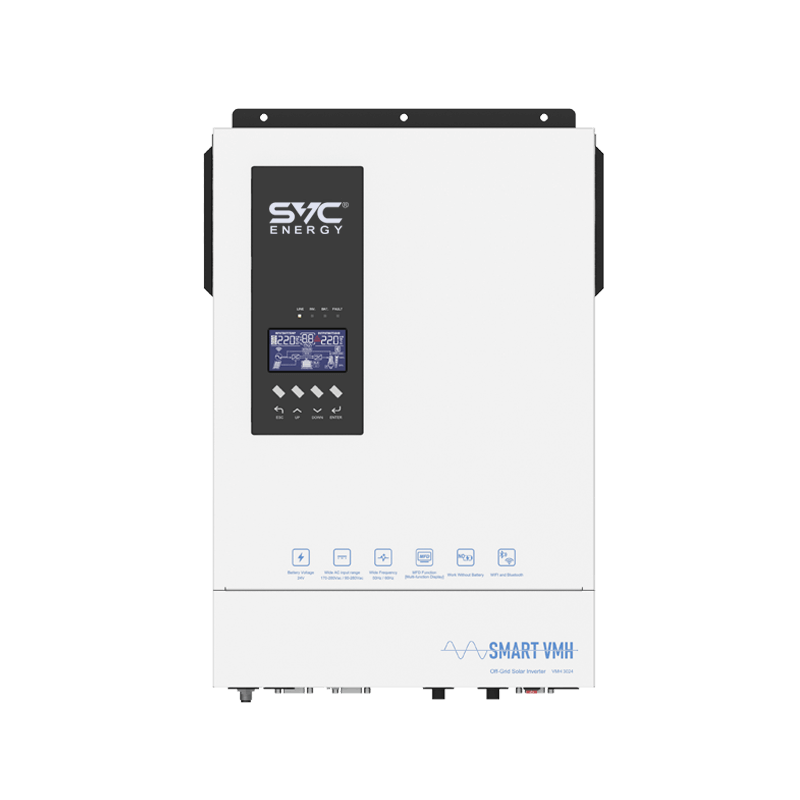
How to Improve the Efficiency of Solar Inverter
2023-07-03 00:00
Solar inverter is the brain of the whole solar system. When we buying solar inverters, one of the important factor we need to be considered is efficiency.
How to calculate the efficiency of solar inverter? Efficiency is the ratio of the input power to the output power.
For example, if the solar inverter inputs 100W DC and outputs 90W AC, its efficiency is 90%.
In general, the efficiency of solar inverter with high performance can reach up to 95% or higher. Some high-efficiency solar inverters on the market today have an efficiency rating of 99%.
The efficiency of a solar inverter depends on several factors such as the quality of the components used, the design of the inverter and the operating conditions.
But the cost-effectiveness of the inverter must be considered, as high-efficiency inverters tend to be more expensive. Therefore, we must strike a balance between efficiency, cost and reliability of solar inverters.
How to improve the efficiency of solar inverter?
As we mentioned before, the high-efficiency solar inverter costs more. If you have a limited budget, and want to look for the most suitable inverter for your solar system. Keep reading.
Proper power capacity: Make sure the inverter has the right power for your solar system. An oversized inverter will result in lower efficiency.
Selection of high-quality components: use inverters with high-quality components such as capacitors, transformers, and semiconductors. High-quality components make the inverter run more efficiently and last longer.
Correct installation: Make sure the inverter is installed correctly and in a well-ventilated location. Proper ventilation reduces heat buildup, which reduces the efficiency of the inverter.
Regular maintenance: Regular maintenance of the inverter will help keep it running at peak efficiency. Some maintenance tasks include cleaning inverters, checking wiring connections, and upgrading firmware.
The performance of the inverter is regularly monitored to detect any problems that may result in a loss of efficiency. Use a monitoring system to track the performance of the inverter and detect any changes.
To use a high-efficiency inverter, remember to pay careful attention to the above items.
Some may wonder whether the high-efficiency inverter is related to the voltage. In fact, in addition to factors such as the quality of components, inverter design and operating conditions, the efficiency of solar inverters is also related to voltage.
In general, higher voltage inverters (such as 48V) are more efficient because they allow lower current and less energy loss. But both 24V and 48V solar inverters can be high efficiency solar inverters.
Generally, the efficiency of 48V high-frequency inverter is higher than that of 48V low-frequency inverter. However, low-frequency inverters are more stable when driving inductive loads. In our actual use, the stability of the inverter is also one of the most important factors. Therefore, when choosing a high-efficiency inverter, the stable performance of the inverter should also be considered. Other factors are also included such as the power of the solar system, load requirements and cost-effectiveness of the inverter.
Still confused? Welcome to contact us. SVCPOWER specializes in manufacturing solar inverters, energy storage system and solar batteries and has established corporation with more than 100 countries all over the world. Provide OEM&ODM service.

Get the latest price? We'll respond as soon as possible(within 12 hours)











